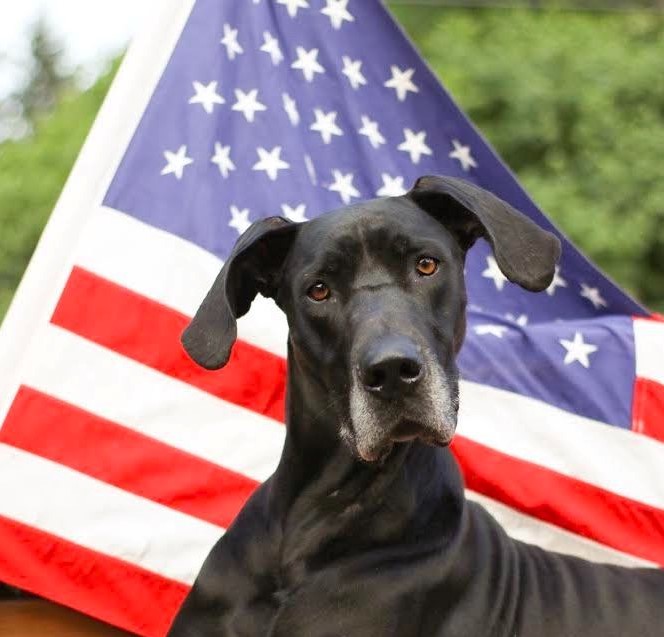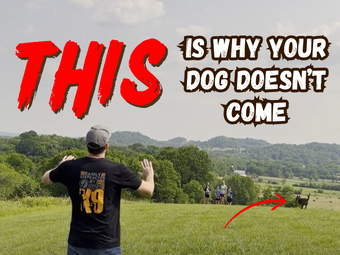History: The Great Dane originated in Germany and was developed as a boar hound during the 16th century. The breed is believed to be a mix between the Mastiff and the Irish Wolfhound. In the year 1876, the breed was deemed the national breed of Germany. Since they were originally bred to hunt boar, early Great Danes were ferocious and aggressive to be able to do their job. German breeders continued to refine the breed and focus on their temperament. Because of these breeders, the Great Dane we know today are gentle giants.
Temperament: The Great Dane is an intelligent, affectionate, and friendly dog. They are extremely good-natured and make a wonderful family companion. This dog loves to play and gets along well with everyone, including children and strangers, when properly socialized. Even though they are so large, Great Danes tend to think they are lap dogs and will try their hardest to make you think so too. Although they may seem very mellow dogs, they do require daily exercise and a daily walk is recommended. Avoid going for long jogs or hikes, especially when your Great Dane is young and still growing. It is recommended to wait until the dog is around two years of age to avoid joint damage. The Great Dane needs an owner willing to put in the work to properly socialize from a young age and keep up with training to ensure your dog is well-mannered.
Health/Grooming: The Great Dane has a short and smooth coat that sheds moderately but may be worse during shedding season. Because of the size of this breed the amount of hair that is shed may still add up. Brush your Great Dane weekly to make sure their coat stays healthy and keeps shedding to a minimum. They only need bathed when necessary but getting your Great Dane used to baths as a puppy will help when they are adults and become very large. This breed may be more prone to issues such as hip dysplasia, bloat, development issues, bone cancer, and gastric torsion. Bloat and Gastric dilation-volvulus (GDV) is the most common cause of death in Great Danes. Making sure to be knowledgeable to the signs of bloat is important. Your breeder should show health tests including: Hip, Ophthalmologist, and Thyroid evaluations along with a cardiac exam.



